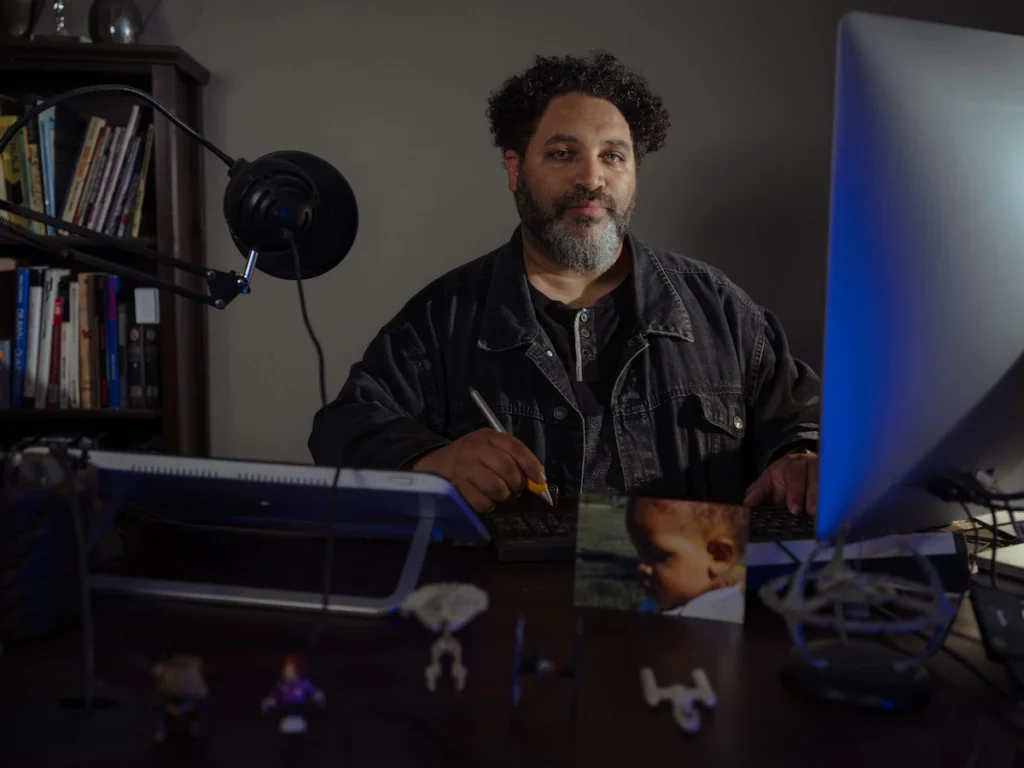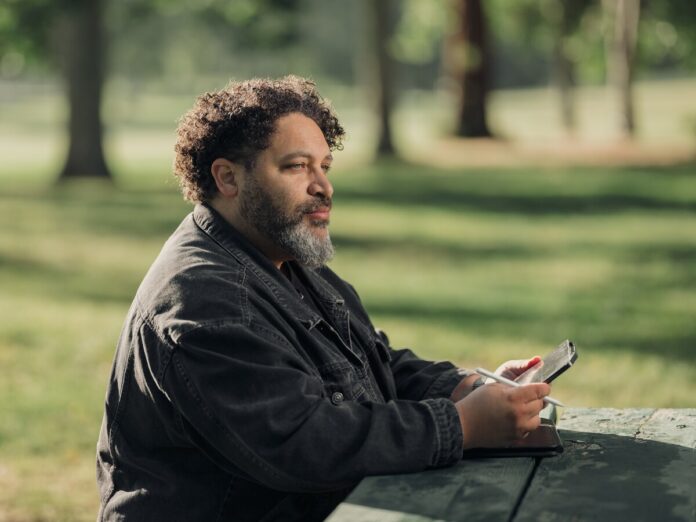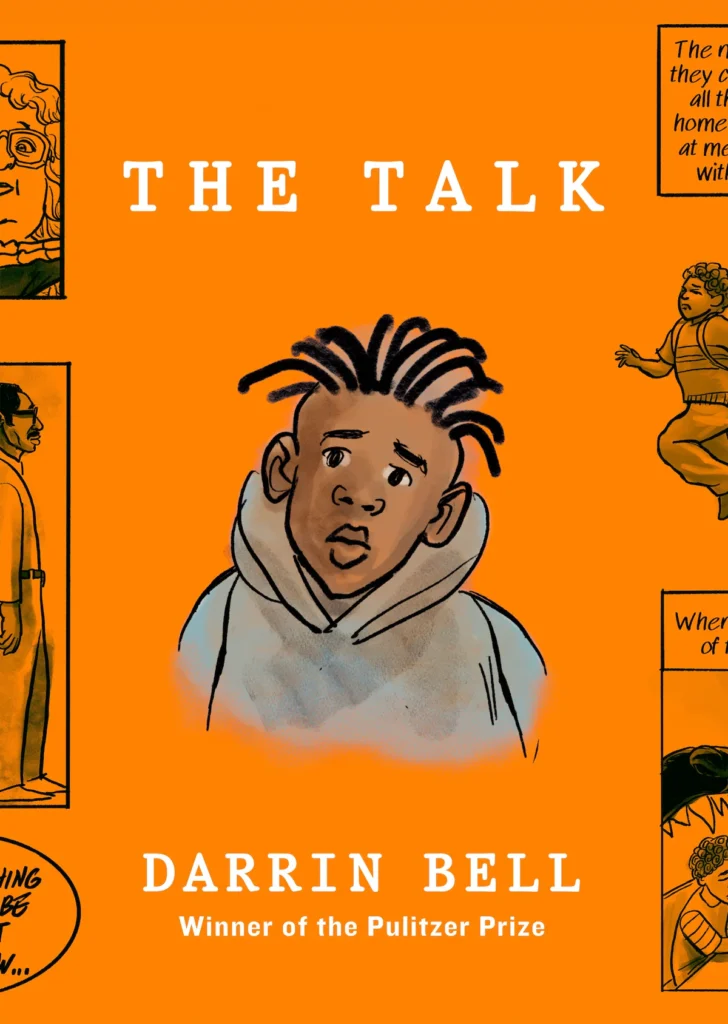“You don’t want to take away any of their innocence. But you have to,’ says Pulitzer-winning artist Darrin Bell, whose memoir recounts how he taught his son about racism in the U.S.”
Darrin Bell was six years old when his mother told him he couldn’t have a realistic water gun. She said she feared for his safety, that police tend to think of little Black boys as older and less innocent than they really are.
Through evocative illustrations and sharp humor, Bell examines how The Talk shaped intimate and public moments from childhood to adulthood. While coming of age in Los Angeles―and finding a voice through cartooning―Bell becomes painfully aware of being regarded as dangerous by white teachers, neighbors, and police officers and thus of his mortality. Drawing attention to the brutal murders of African Americans and showcasing revealing insights and cartoons along the way, he brings us up to the moment of reckoning when people took to the streets protesting the murders of George Floyd and Breonna Taylor. And now Bell must decide whether he and his own six-year-old son are ready to have The Talk.
The book is visually stunning, and propulsive, with an absorbing narrative voice. Divided into almost two dozen chapters, its drawings fluctuate from the whimsically cartoonish to the delightfully painterly. The page layouts are complex and often surprising, with illustrations sometimes splitting at the seams to suggest confusion, or fluctuation. At other times single images swell across pages to convey the overwhelming atmosphere of a caustic memory.

Bell hopes some readers might see themselves in his father and then summon the strength to have the talk. “You look at your sweet, innocent little baby and you don’t want to,” he says. “And you don’t want to take away any of their innocence. But you have to. I knew it and it takes a lot of courage to do it.”
Bell says he did not begin writing “The Talk” for a mass audience, but rather to share with his son, now 9. Yet today, Bell says by Zoom interview last week from his Sacramento-area home, he views the book as more than simply his story. It’s also a guide for people who might be uncomfortable having “the talk” — a catchall term for how Black parents first discuss with their children the realities of American racism.
One of those people was Bell’s own father, who left the family on Bell’s 10th birthday.
When Bell was 6, he had a traumatizing encounter with a police officer. He was gleefully playing with a neon-green toy water gun — pretending he was a Star Wars character — when an officer suddenly commanded him, “Drop the weapon.” The officer began barking orders Bell did not understand before saying the words “warning” and “go home.” He then took Bell’s water gun.
In that climactic chapter that cuts between Bell as child and parent, he wonders whether his father was trying to spare him from a glimpse into the child’s future as a Black man in America. “My dad didn’t have the power and neither do I,” he writes. “My son’s world is his to create. All I can do is prepare him.”
Bell says “The Talk” let him cathartically relive his childhood through adult eyes, even the traumatic chapters: “It made me appreciate on a visceral level how important our stories are, even when they’re sad.
A beautifully drawn book, rich with insight, humor, and hard-won knowledge.
About the Author
Pulitzer Prize-winning Editorial Cartoonist Darrin Bell, author of the upcoming graphic novel/memoir “The Talk,” creates the comic strips “Candorville” and “Rudy Park,” as well as political cartoons with King Features Syndicate. Before that, while studying political science at UC Berkeley, he served as the Daily Californian’s staff cartoonist and freelanced cartoons to the Los Angeles Times, San Francisco Chronicle, Oakland Tribune, and other papers. His work now appears in hundreds of papers nationwide.
Darrin is the recipient of the 2019 Pulitzer Prize for Editorial Cartooning, the 2016 Berryman Award for Editorial Cartooning and the 2015 Robert F. Kennedy Journalism Award for Editorial Cartooning.
He’s a Los Angeles native who was the son of educators, the grandson of a World War II veteran, the great great grandson of former slaves, and the father of four small children. Aside from his cartooning, he’s best known for talking about himself in the third person.







